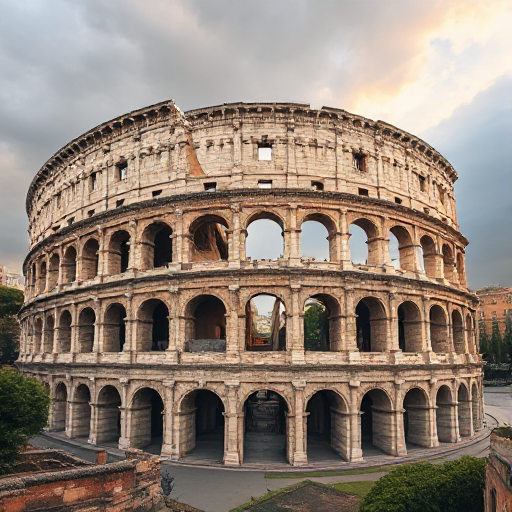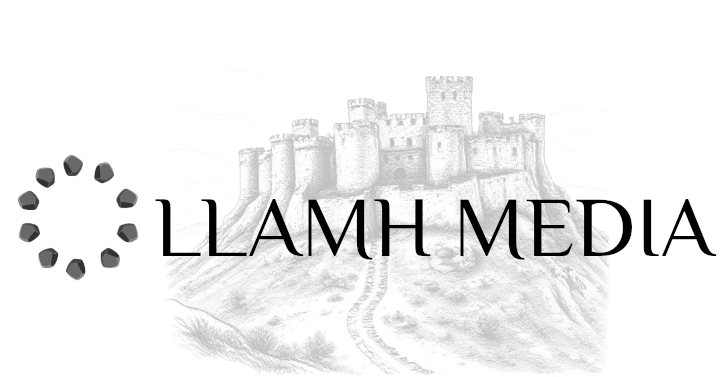Welcome to your weekly wisdom, history and health newsletter. This week, we discuss does morality exist? The formation of Ireland as a landmass and sport as an abstract for war.
Does Morality Exist?
The debate between objective and subjective morality has been central to philosophical discourse for centuries. It revolves around whether oral principles are universal and independent of human opinion (objective) or contingent on individual or cultural perspectives (subjective).
Objective Morality
Proponents of objective morality argue that certain ethical truths exist independently of human beliefs or emotions. Philosophers like Immanuel Kant and Plato have endorsed this view, albeit through different frameworks. Plato, for instance, rooted morality in the realm of ideal forms. These forms unchanging, perfect standards that exist beyond human experience. Kant, on the other hand, grounded objective morality in reason, proposing the categorial imperative: a set of universal moral laws derived fro rational thought. Advocates believe this universality ensures fairness and consistency, preventing moral relativism where “anything goes.”
Subjective Morality
In contrast, defenders of subjective morality argue that moral values are shaped by human experiences, emotions, and cultural contexts. David Hume famously asserted that moral judgements stem from feelings rather than reason, emphasising the role of empathy and sentiment in shaping ethical standards. More modern interpretations, such as those from existentialist philosophers like Jean-Paul Sartre, contend that individuals create their own moral frameworks in a world devoid of inherent meaning. This perspective values personal freedom and cultural diversity but risks ethical disagreement and conflict.
Criticisms of Subjective & Objective Morality
Critics of subjective morality worry it leads to moral relativism, where harmful practices could be justified within cultural or individual contexts. Conversely, critics of objective morality argue it imposes rigid standards that may disregard human diversity and historical context.
Within academic circles the debate persists because morality touches on fundamental questions of human existence: What does it mean to live a good life? Are some values universal, or is everything negotiable? Each position offers insights, but no definitive answer satisfies all perspectives, making it a perennial topic in philosophy.
Islamic Wisdom & Objective Morality
In Islam, morality is rooted in the belief in Allah, who serves as the ultimate source of objective moral values and guidance. The Qur’an and the Hadith (sayings of the Prophet Muhammad, peace be upon him) provide a comprehensive moral framework, establishing clear principles of right and wrong that transcend human subjectivity. Muslims believe that these divine commandments reflect an unchanging and universal standard, grounded in Allah’s perfect wisdom and justice.
The link between objective morality and belief in God is central to Islamic theology. Without a transcendent source, morality risks becoming arbitrary, shaped by individual preferences or societal trends. Islam asserts that human reason, while valuable, is limited and prone to error. It is through revelation that humanity gains access to objective moral truths. For example, prohibitions against lying, theft and oppression are seen as not merely pragmatic rules but divine imperatives reflecting a higher, immutable order.
Moreover, belief in God gives moral obligations their ultimate accountability. In Islam, human actions are judged in the afterlife, emphasising personal responsibility and the eternal consequences of ethical behaviour. This divine framework provides consistency and purpose, ensuring that morality is not a human construct but a reflection of the will of the Creator.

The History of Ireland’s Formation as an Island
The formation of Ireland as a distinct landmass is a story of dramatic geological processes spanning hundreds of millions of years. Ireland’s geological history begins during the Paleozoic Era, around 500 million years ago, when the region was part of two separate landmasses. The two landmasses being Laurentia to the northwest and Gondwana to the south. These landmasses were separated by the Iapetus Ocean.
Over time, tectonic plate movements caused the Iapetus Ocean to close. About 400 million years ago, during the Caledonian orogeny, Laurentia and Gondwana collided, creating a single landmass and forming much of the rugged mountain terrain seen in parts of Ireland today. This collision also created the foundation of Ireland’s geological structure, including the metamorphic and sedimentary rocks that define its landscape.
The Beginning of Modern Ireland
By the Carboniferous period, around 340 million years ago, Ireland was located near the equator and covered by a warm, shallow sea. This led to the deposition of massive limestone beds, which today dominate much of the central plains. Later, during the breakup of the supercontinent Pangaea around 200 million years ago, the Atlantic Ocean began to form. This event slowly separated Ireland from what is now North America and Europe.
The final phase of Ireland’s isolation occurred around 65 million years ago during the Cenozoic Era, as the Atlantic Ocean continued to widen. Volcanic activity in the north, including the formation of the Giant’s Causeway, marked this period of geological upheaval. Eventually, rising sea levels and continued plate movement separated Ireland.
Today, Ireland remains an island shaped by glacial activity during the Ice Ages, which sculpted its valleys, fjords and lakes. The interplay of tectonics, volcanic activity and erosion over millions of years has resulted in the Ireland we recognise today.

Sport as an Abstract of War
The idea that sport is an abstract of war is rooted in its competitive, strategic and physical nature. Sport, like war, often involves opposing sides striving for dominance. Anthropologists and sociologists have long argued that sports evolved as a way for societies to channel aggression. Therefore, the natural urge to compete can be channelled into structured, rule-bound contests. This offers a safer outlet for humanity’s primal instincts.
The closer a sport resembles the dynamics of war, the more authentic it is perceived in fulfilling its purpose. Combat sports like boxing, wrestling and mixed martial arts directly mimic the physical struggle of hand-to-hand combat. These sports strip competition down to its most elemental form, one individual against another. This event closely mimics the ‘champion duels’, that we witness throughout history. Interestingly, the best athlete in their division is the champion.
Team Sports
Team sports, such as soccer, rugby or American football, while less direct, still draw heavily on the strategic aspects of warfare. They involve territory control, coordination of movements, and even elements of deception, akin to military tactics. Their popularity can be linked to the way they foster tribalism and allegiance, echoing the collective identity often forged in the context of war.
Sports closer to war retain a sense of primal authenticity. For instance, these sports tap into traits inherent within humans such as, strength, strategy and solidarity. This proximity to conflict, however symbolic, resonated deeply with spectators, eliciting emotions of triumph, defeat and camaraderie.
At their core, sports are a codified representation of humanity’s competitive nature. Therefore, they provide a safe space for the expression of aggression, heroism and strategy. The more a sport reflects the essence of conflict, the more it fulfils this purpose, embodying a controlled abstraction of humanity’s historical relationship with war.


